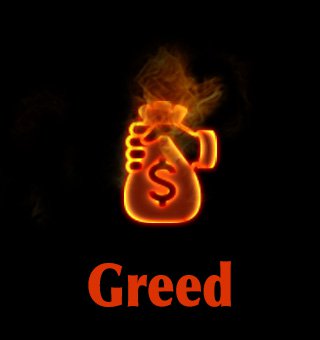|
According to Jesus, the Ten Commandments and all the moral principles in the Old Testament Scriptures are not subject to change; they are to continue to guide His followers: “Do not think that I came to destroy the Law or the Prophets. I did not come to destroy but to fulfill. For assuredly, I say to you, till heaven and earth pass away, one jot or one tittle will by no means pass from the law till all is fulfilled. Whoever therefore breaks one of the least of these commandments, and teaches men so, shall be called least in the kingdom of heaven; but whoever does and teaches them, he shall be called great in the kingdom of heaven” (Matthew 5:17-19). Jesus faithfully honored and observed the Sabbath. He is our example in Sabbath-keeping. “He [Jesus] came to Nazareth, where He had been brought up. And as His custom was, He went into the synagogue on the Sabbath day” (Luke 4:16). Looking to the future, Jesus wanted His disciples to continue experiencing the joys of true Sabbath-keeping. He instructed them to pray that, during the siege, they would not have to flee from Jerusalem on the Sabbath. “Pray that your flight may not be in winter or on the Sabbath” (Matthew 24:20). Jesus was speaking of the destruction of Jerusalem—an event that took place in A.D. 70, nearly 40 years after His resurrection. Jesus did not change the Sabbath commandment, nor any of the other commandments. In fact, He instructed the rich young ruler to obey the Ten Commandments (Matthew 19:16-22). It is clear from Jesus’ teaching and example that we still need the Sabbath for rest, relaxation, and spending time with God. |
|
James, the first leader of the early Christian church, wrote concerning the Ten Commandments: “For whoever shall keep the whole law, and yet stumble in one point, he is guilty of all. For He who said, ‘Do not commit adultery,’ also said, ‘Do not murder.’ Now if you do not commit adultery, but you do murder, you have become a transgressor of the law” (James 2:10, 11). Luke, a physician and evangelist in the early church, reports: “On the Sabbath day we went out of the city to the riverside, where prayer was customarily made; and we sat down and spoke to the women who met there” (Acts 16:13). Paul, the apostle to the Gentiles, who wrote much of the New Testament, affirms: “For He [God] has spoken in a certain place of the seventh day in this way: ‘And God rested on the seventh day from all His works’ [see Genesis 2:2]. . . . There remains therefore a [Sabbath] rest for the people of God” (Hebrews 4:4, 9). What did Paul say about the Sabbath in Romans 14:5? The New Testament book of Acts mentions 84 different Sabbaths observed by the apostles, all of them more than 14 years after the resurrection of Jesus.
|
|
"One man esteemeth one day above another: another esteemeth every day alike. Let every man be fully persuaded in his own mind." Romans 14:5 According to Romans 14:5, can I esteem any day of worship to be the Sabbath? “One person esteems one day above another; another esteems every day alike. Let each be fully convinced in his own mind” (Romans 14:5). In this verse, Paul is not speaking about the Sabbath, but rather Jewish holy days or festivals. Ceremonial ordinancesThe Jewish converts of the early church found it very difficult to leave the ceremonial ordinances of Old Testament Israel out of their religious practices. They thought of Christianity as being Jewish. Jesus was a Jew. His disciples were Jews. The Scriptures were written in Hebrew. It was hard to separate the types and symbols which Christ fulfilled, from the real. In Romans 14:5, Paul is pleading with the Jewish Christians to cease fighting about the observance of ceremonial days and feasts which ended at the cross. Then he counsels, "Let every man be fully persuaded in his own mind." Persuaded by the BibleBy what standard shall we be persuaded in our own minds? "By the word of God, which liveth and abideth for ever" (1 Peter 1:23). The word of God outlines His day of worship, the seventh day of the week. |
|
A careful examination of the eight texts referring to the first day of the week clarifies what occurred during these Sunday events: 1. The women came to Jesus’ tomb on the first day of the week (Matthew 28:1). 2. “When the Sabbath was past,” the women brought spices to anoint Jesus’ body “very early in the morning, on the first day of the week” (Mark 16:1, 2). 3. Jesus appeared to Mary Magdalene “early on the first day of the week” (Mark 16:9). 4. After resting on the Sabbath “according to the commandment” (Luke 23:56), the women came to Jesus’ tomb early “on the first day of the week” (Luke 24:1). 5. Mary Magdalene went to the grave of Jesus and found the tomb empty “on the first day of the week” (John 20:1). 6. The disciples gathered together “for fear of the Jews” (not for worship) on the first day of the week (John 20:19). 7. Paul asked church members to take account of their funds “on the first day of the week,” and “lay something aside” for the poor at Jerusalem (1 Corinthians 16:1, 2). The passage does not mention any religious meeting. 8. In Acts 20:7 Luke speaks of the disciples coming “together to break bread” and of Paul preaching “on the first day of the week” at an impromptu farewell meeting. Elsewhere, Luke describes the early Christians as coming together “daily” to fellowship, break bread, praise God, and pray (Acts 2:41-47). |
|
"Upon the first day of the week let every one of you lay by him in store, as God hath prospered him, that there be no gatherings when I come." I Corinthians 16:2 What is the meaning of 1 Corinthians 16:2? “On the first day of the week let each one of you lay something aside, storing up as he may prosper, that there be no collections when I come.” Collections on the first dayThis is the only reference to the first day of the week, Sunday, in all of Paul's letters. Reliable Bible scholars generally agree that the original meaning of this statement calls for the Corinthian believers to bring their bookkeeping up to date on the first day of each week and then in their own homes to set aside gifts for charity (the poor in Jerusalem) so that when Paul came to gather the gifts there would be no last-minute disorganized fund-collecting. Several translations read much as does Weymouth's translation of the New Testament: “On the first day of the week let each of you put by and keep any profit he may have made, so that there may be no collections made after I have come” (1 Corinthians 16:2). No mention of Sunday worshipPaul wrote this letter about A.D. 59, yet this text attributes no sacredness to the first day, Sunday. The first-day is not called the Lord's day or the Sabbath. There was no law for observing the first day. Paul said nothing here about abstaining from work on Sunday, and He says nothing of the Lord's Supper. There was no mention of church, sacred service, custom, neither collection box nor plate. The apostle Paul was collecting for the relief of the persecuted Christians at Jerusalem and his plea was that when church members reckoned up their week's profits on the first day (Sunday), they should systematically put aside such donations as they desired to send to their afflicted brethren in Jerusalem. Sunday, Wednesday or Saturday?Honestly, would we use this text to support the keeping of Wednesday if it had read, "On the fourth day of the week"? Surely we would not. We must admit that the Bible never so much as hints at Sunday sacredness, nor does it command the observance of any day in commemoration of the resurrection of our Lord. |
|
Let’s look at what the Bible says in Mark 2:27, “The Sabbath was made for man, and not man for the Sabbath.” The Sabbath was made by Jesus at the creation of this world. Jews did not exist at that time. God made the Sabbath, with its threefold blessing, for all mankind, the entire human race. When the Ten Commandments were spoken by God on Sinai to the nation of Israel, they were told to "remember" what God had given to the whole human family hundreds of years before. The Sabbath is for all humanityThis commandment applied not only to the Jews but also to the "stranger within thy gates." Even the Gentile (to the Jew, a "stranger") was commanded to keep the Sabbath of creation. If we admit that we belong to the human family, then God's seventh-day Sabbath is for us. Is God’s law for Jews only?If the Sabbath were made just for the Jews, then the whole law of the ten moral commandments was made for the Jews alone. If that were the case, then Gentile Christians may take God’s name in vain and worship before idols of wood and stone. The majority are wrong when they deny the binding claims of the entire law of God, including the seventh-day Sabbath. “He that saith he abideth in him ought himself also so to walk, even as he [Jesus] walked” (1 John 2:6). We should walk as Jesus walked...Are you walking as Jesus walked? Jesus kept the seventh-day Sabbath as a Christian, not as a Jew. Won't you keep the Sabbath because you love God so much that you want to please Him with all your heart? |
|
Some people are convinced that Sunday, the first day of the week, is the Biblical Sabbath. Others believe that Saturday, the seventh day of the week, is the Sabbath. Let’s take an in-depth look at this topic and examine the facts about what day is the Sabbath of the Bible. According to the Ten Commandments, the Sabbath is located on the seventh day of the week. Exodus 20:8-10 says the following, “Remember the Sabbath day, to keep it holy. Six days you shall labor and do all your work, but the seventh day is the Sabbath of the Lord your God.” At creation God also rested and declared the seventh day holy (Genesis 2:1-3). Is the seventh day the Sabbath?The New Testament is in agreement as to which day is the seventh day of the week. One of the most straight-forward references is found in Luke 23:53-56 & Luke 24:1, and describes Joseph of Arimathaea taking the body of Jesus down off the cross. “Then he took it [the body of Jesus] down, wrapped it in linen, and laid it in a tomb that was hewn out of the rock, where no one had ever lain before. That day was the Preparation, and the Sabbath drew near. And the women who had come with Him from Galilee followed after, and they observed the tomb and how His body was laid. Then they returned and prepared spices and fragrant oils. And they rested on the Sabbath according to the commandment. Now on the first day of the week, very early in the morning, they, and certain other women with them, came to the tomb bringing the spices which they had prepared.” This Bible passage shows the chronology of the week including how the Sabbath day and the first day of the week relate to each other. According to Luke 23:54, Jesus died on the preparation day which we now call Good Friday. The next day, Sabbath, the women rested according to the commandment. Finally, after the Sabbath, on the first day of the week, Jesus was resurrected. Therefore, according to the Bible, the Sabbath day can be pinpointed as the day before the first day of the week. Today, we call this day Saturday or the seventh day of the week. In addition, ask any Christian which day comes between Good Friday and Resurrection Sunday—their answer, Saturday. Preparation day or sixth day = Friday Which day is the first day of the week?Many have asked the question, my calendar begins on Monday, doesn’t that make Sunday the seventh day of the week? It is true that many calendars begin on Monday, but some calendars around the world begin on Friday, Saturday or Sunday as well. The answer to this can be found by studying the linguistics or meaning of each day’s name, rather than only looking at the order of the days printed on paper. Any human can change the order of a printed calendar, but it is a lot harder to change every language in the world. Consider the Greek language in which the New Testament was written. According to the Bible, the day before the Sabbath was called the preparation day or “paraskeue" in the Greek language. Even today, thousands of years later, the sixth day of the week, called "Friday" in the English calendar, is still called “Paraskeue" in the modern Greek calendar. Therefore the day that comes after Friday is the Sabbath day. Sabbath around the worldLooking at over 100 languages around the world, the seventh day of the week is translated as “Sabbath”. Here is a short list of languages and their translations: (Arabic: Sabet, Czech: Sobota, Indonesian: Sabtu, Italian: Sabato, Latin: Sabbatum, Portuguese: Sábado, Russian: Subbota, Spanish: Sabado). What does the English language say about the Sabbath? Webster’s dictionary defines the Sabbath as the following: “Seventh day, Saturday, the seventh day of the week.” (Webster’s New Twentieth Century Dictionary, unabridged 2nd ed.) Consider this—no language contains a correlating link between the word “Sabbath" and the first day of the week. In fact, not even one language designates another rest day besides the seventh day. This confirms the fact that those who used the original languages understood the meaning of the Sabbath and which day it fell upon. |
|
John, the last of the 12 apostles to die, wrote five books of the Bible—one gospel, three epistles (letters), and the prophetic book of Revelation. He died about A.D. 100, approximately 70 years after the resurrection of Jesus. Nowhere in all of his writings does he speak of a change of the Sabbath from the seventh to the first day of the week. In fact, John himself kept the Sabbath. He wrote: “I was in the Spirit on the Lord’s Day” (Revelation 1:10). According to Jesus, the Lord’s Day is the Sabbath: “The Son of Man is Lord even of the Sabbath” (Matthew 12:8). A search of the scriptural evidence reveals that the apostles made no attempt to change God’s day of rest from the seventh day (Sabbath) to the first day of the week (Sunday). The New Testament mentions the first day of the week only eight times. In none of these instances is the first day of the week spoken of as a holy day, nor is it even hinted that we should observe it as a day of worship. |
Who changed the Sabbath?
No Biblical evidence for Sunday worshipNone of these verses suggest that the apostles intended to stop observing the seventh-day Sabbath and begin worshipping on Sunday. There is clearly no New Testament evidence for a change of the Sabbath from Saturday, the seventh day of the week, to Sunday, the first day of the week. The change came after the days of Jesus and the apostles, so we must turn to history to see when and how this change came about. Evidence in historyThe change from Sabbath observance to Sunday observance took place after the New Testament was completed and all the apostles had died. History records that Christians eventually shifted from worshipping and resting on the seventh day to the first day of the week. “A history of the problem shows that in some places, it was really only after some centuries that the Sabbath rest really was entirely abolished, and by that time the practice of observing a bodily rest on the Sunday had taken its place” (Vincent J. Kelly, Forbidden Sunday and Feast-Day Occupations, p. 15). Of course, believers didn’t stop observing the seventh-day Sabbath on a given weekend and then suddenly begin keeping Sunday as the Lord’s Day. The earliest authentic instance of Sunday observance by Christians occurred in Italy, in the middle of the 2nd century after Christ. For a long time after that, many Christians observed both days, while still others kept the seventh-day Sabbath only. Constantine the Great changed the Sabbath to SundayOn March 7, A.D. 321, Constantine the Great issued the first civil Sunday law, compelling all the people in the Roman Empire, except farmers, to rest on Sunday. This, with five other civil laws decreed by Constantine concerning Sunday, set the legal precedent for all civil Sunday legislation from that time to the present. In the 4th century, the Council of Laodicea urged Christians to honor Sunday by abstaining from work on that day if at all possible, and prohibited them from abstaining from work on the Sabbath. |
|
Please note, the word "Sunday" is not mentioned in the Bible at all, but there are eight New Testament texts that mention the "first day." Let us look at them briefly for evidence of Sunday worship or holiness. First day Bible verses
1) Matthew 28:1“Now after the Sabbath, as the first day of the week began to dawn, Mary Magdalene and the other Mary came to see the tomb” (Matthew 28:1). There is no mention of Sunday sacredness in this text and no reference to worship in any form. Matthew 28:1 merely states that before sunrise on the first day these women came to examine the tomb. 2) Mark 16:1-2“Now when the Sabbath was past, Mary Magdalene, Mary the mother of James, and Salome bought spices, that they might come and anoint Him. Very early in the morning, on the first day of the week, they came to the tomb when the sun had risen” (Mark 16:1-2). These verses tell us that the first day of the week follows the Sabbath. They also inform us that these women had come on the morning of the first day prepared to embalm the body of Jesus, quite a task for those who should have rested if Sunday had any Bible sacredness. These women had no thought of Sunday sacredness. 3) Mark 16:9“Now when He rose early on the first day of the week, He appeared first to Mary Magdalene, out of whom He had cast seven demons” (Mark 16:9). Again, there is no mention of a day of rest here. Surely, if Jesus had intended that Sunday should be observed as a day of rest commemorating His resurrection, He would have told His disciples first of all. There is no Scriptural hint that they ever dreamed of a possible change of the Sabbath. 4) Luke 24:1“Now on the first day of the week, very early in the morning, they, and certain other women with them, came to the tomb bringing the spices which they had prepared” (Luke 24:1). Luke agrees with the other witnesses regarding the intention of these intimate friends and followers of Jesus. They had come to the tomb bent on giving the body of Jesus proper burial. In Luke 23:56, the verse just preceding this text, we are told that these loyal disciples of Jesus "rested the Sabbath day according to the commandment." Then, on the next day after the Sabbath, they were prepared to engage in a difficult day's work. This verse certainly offers no hint of the change of the Sabbath to the first day of the week. 5) John 20:1“Now the first day of the week Mary Magdalene went to the tomb early, while it was still dark, and saw that the stone had been taken away from the tomb” (John 20:1). This text was evidently written about sixty years after the resurrection of Jesus. Yet John never so much as implied any knowledge of a Sabbath change. The disciple who felt himself closest to Jesus, evidently had never heard of a first-day commemoration of the resurrection. 6) John 20:19“Then, the same day at evening, being the first day of the week, when the doors were shut where the disciples were assembled, for fear of the Jews, Jesus came and stood in the midst, and said to them, ‘Peace be with you’” (John 20:19). The doors were shut where the disciples were assembled for fear of the Jews. In Mark 16:14, we find Jesus reproving His disciples for their failure to believe that He had risen. There is, therefore, no possible chance that they had gathered on this occasion to commemorate the resurrection. As we have seen from the previous verses, nowhere in the four Gospels is there the minutest hint of Sunday sacredness. 7) Acts 20:7, 11, 13“Now on the first day of the week, when the disciples came together to break bread, Paul, ready to depart the next day, spoke to them and continued his message until midnight… Now when he had come up, had broken bread and eaten, and talked a long while, even till daybreak, he departed… Then we went ahead to the ship and sailed to Assos, there intending to take Paul on board; for so he had given orders, intending himself to go on foot” (Acts 20:7, 11, 13). 8) 1 Corinthians 16:1-2“On the first day of the week let each one of you lay something aside, storing up as he may prosper, that there be no collections when I come” (1 Corinthians 16:2). Conclusions about New Testament Sunday worship
|
Should Christians worship on Sunday to honor Jesus’ resurrection?If Christians accept the Bible as their sole guide into all truth, then they must accept the Bible memorial of the resurrection of Jesus rather than a memorial set apart only by tradition and sentimentalism. In the Bible, baptism (not Sunday) is given to commemorate the death, burial, and resurrection of Jesus. The evidence of PaulPaul says the following, “Or do you not know that as many of us as were baptized into Christ Jesus were baptized into His death? Therefore we were buried with Him through baptism into death, that just as Christ was raised from the dead by the glory of the Father, even so we also should walk in newness of life. For if we have been united together in the likeness of His death, certainly we also shall be in the likeness of His resurrection” (Romans 6:3-5). Sunday or baptism?Do you have two birthdays in one year? Of course not. Neither does the Bible set apart two memorials of the resurrection of Jesus. The Word of God commands one, and only one memorial, and that is baptism. The acceptance of Sunday rest as commemorative of the resurrection is without Scriptural authority, but comes from the compromise of the Christian church with pagan sun worship in the fourth century. The Bible and history are absolutely clear and harmonious on this question. "Be not deceived." Once again, the majority of Christians are wrong in substituting Sunday for the Bible Sabbath. |
In Acts 20:7-11, did the disciples actually worship on Sunday?The Bible says, “Now on the first day of the week, when the disciples came together to break bread, Paul, ready to depart the next day, spoke to them and continued his message until midnight… Now when he had come up, had broken bread and eaten, and talked a long while, even till daybreak, he departed… Then we went ahead to the ship and sailed to Assos, there intending to take Paul on board; for so he had given orders, intending himself to go on foot” (Acts 20:7, 11, 13). A late-night gatheringThe apostle Paul was en route to Jerusalem. His ship stopped in Troas and, while waiting there for it to sail, he called together his converts and held a meeting. He preached until after midnight and then held the Communion with them. The first day of the weekThere is nothing mentioned here about holding a first-day service, thus indicating that that day was the Sabbath, otherwise when Paul held a meeting at Miletus on the following Wednesday (Acts 20:14-18) that service would have sanctified Wednesday also. But where is the Christian who keeps Wednesday for that reason? Our Lord instituted the Communion on a Thursday night. If the Communion service makes a day holy, why are we not observing Thursday as the Sabbath? Furthermore, the Communion has no relation to the resurrection of Christ, but rather, refers to His death. "Ye do shew the Lord's death till he come" (1 Corinthians 11:26). Breaking bread dailyIn Acts 2:46, 47, we find the disciples breaking bread daily, but that does not make every day the Sabbath. Friend, let us remember that every institution incorporated in the new covenant was given before the death of Christ, not one after His resurrection. His last will and testament was sealed with His blood and it did not include first-day worship in commemoration of His resurrection. |
|
What do the Scriptures say about alcohol, wine and liquor? It's in the Bible, Proverbs 20:1, RSV. "Wine is a mocker, strong drink a brawler; and whoever is led astray by it is not wise." Why are kings and rulers advised to not drink alcoholic drinks? It's in the Bible, Proverbs 31:4-5, NIV. "It is not for kings to drink wine, not for rulers to crave beer, lest they drink and forget what the law decrees, and deprive all the oppressed of their rights." With what sins is drunkenness classed? It's in the Bible, Galatians 5:19-21, NKJV. "Now the works of the flesh are evident, which are: adultery, fornication, uncleanness, lewdness, idolatry, sorcery, hatred, contentions, jealousies, outbursts of wrath, selfish ambitions, dissensions, heresies, envy, murders, drunkenness, revelries, and the like; of which I tell you beforehand, just as I also told you in time past, that those who practice such things will not inherit the kingdom of God" What is one of the results of over-indulgence in food and drink? It's in the Bible, Proverbs 23:20-21, NIV. "Do not join those who drink too much wine or gorge themselves on meat, for drunkards and gluttons become poor, and drowsiness clothes them in rags." How do alcoholic drinks affect those who use them? It's in the Bible, Proverbs 23:29-35, TLB. "Whose heart is filled with anguish and sorrow? Who is always fighting and quarreling? Who is the man with bloodshot eyes and many wounds? It is the one who spends long hours in the taverns, trying out new mixtures. Don't let the sparkle and the smooth taste of strong wine deceive you. For in the end it bites like a poisonous serpent; it stings like an adder. You will see hallucinations and have delirium tremors, and you will say foolish, silly things that would embarrass you to no end when sober. You will stagger like a sailor tossed at sea, clinging to a swaying mast. And afterwards you will say, 'I didn't even know it when they beat me up.'" Pure grape juice - not fermented wine - is a blessing to man. It's in the Bible, Isaiah 65:8, NKJV. "As the new wine is found in the cluster one says, 'Do not destroy it, for a blessing is in it'" Our actions, no matter what they are, should be to bring glory to God. It's in the Bible, 1 Corinthians 10:30-32, "Therefore, whether you eat or drink, or whatever you do, do all to the glory of God" Can I not just drink what I want? It's in the Bible, 1 Corinthians 6:19, NKJV. "Or do you not know that your body is the temple of the Holy Spirit who is in you, whom you have from God, and you are not your own" The Bible offers a powerful alternative to drinking. It's in the Bible, Ephesians 5:18, TEV. "Do not get drunk with wine, which will only ruin you; instead be filled with the Spirit." |
|
It is often supposed that in Bible times, grape juice inevitably fermented if kept for any length of time... and that therefore whenever the Bible mentions “wine,” it is referring to the alcoholic beverage commonly called “wine” today. However, ancient civilizations had several ways of preventing fruit and fruit juices from fermentation, and thus were able to have non-alcoholic wine (grape juice) throughout the year. Preventing fermentation1) One method involved boiling the juice and reducing it to a syrup that could later be diluted with water. 2) Another was to boil the juice with minimum evaporation and then immediately seal it with beeswax in airtight jars. 3) Drying the fruit in the sun and then reconstituting it with water, adding sulfur to the fruit juice, or filtering the juice to extract the gluten were also methods that would prevent the juice from fermenting. These means of preservation were known to the ancients, who also practiced boiling fermented juice to eliminate the alcohol. Unfermented wine in ancient literatureReferring to reconstituting grape syrup to make grape juice, Aristotle, who was born around 384 b.c., wrote “The wine of Arcadia was so thick that it was necessary to scrape it from the skin bottles in which it was contained and to dissolve the scrapings in water” (quoted in Nott’s Lectures on Biblical Temperance, p. 80). The poet Horace, born in 65 b.c., wrote, “There is no wine sweeter to drink than that of Lesbos; it was like nectar . . . and would not produce intoxication.” “The Mishna [a collection of oral Jewish traditions] states that the Jews were in the habit of drinking boiled wine” (Kitto’s Cyclopedia of Biblical Literature, vol. 2, p. 447). Naturally, this wine would be entirely free of alcohol as a result of the boiling, if not also from the manner of preservation. Additional informationIn his commentary on the Gospel of John, Albert Barnes wrote, “The wine of Judea was the pure juice of the grape, without any mixture of alcohol. It was the common drink of the people and did not produce intoxication.” And Adam Clarke, commenting on Genesis 40:11, wrote, “From this we find that wine anciently was the mere expressed juice of the grape without fermentation. The saky, or cupbearer, took the bunch [of grapes], pressed the juice into the cup, and instantly delivered it into the hands of his master. This was anciently the yayin [wine] of the Hebrews, the oinos [wine] of the Greeks, and the mustum [wine] of the ancient Latins.” Clarke’s comments agree with the Scripture that declares “As the new wine is found in the cluster, and one says, ‘Do not destroy it, for a blessing is in it’ ” (Isaiah 65:8, NKJV). |







